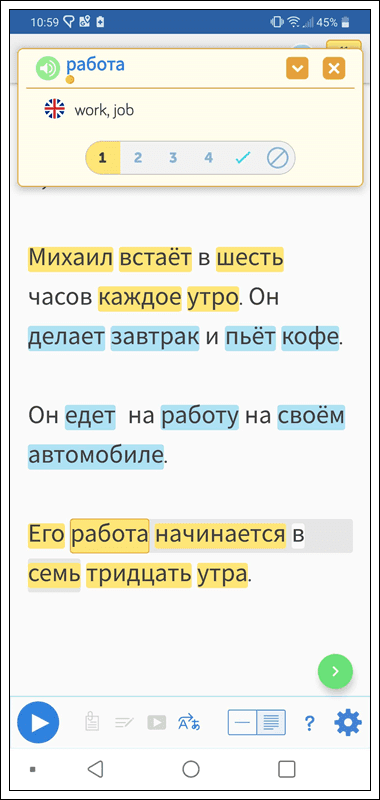The Russian language, though challenging, is unique and according to Google, the 7th most spoken language in the world. In this post, I will share a few tips that will help you learn Russian on your own, without having to step foot in the country. There are three things you’ll need, motivation, time, and internet access.
Why learning Russian on your own is a good thing
Before I lend you some advice, I’d first like to explain why I think learning on your own is one of the best ways to master a new language.
Generally, a traditional language course is straightforward, without acknowledging the fact that language learners may have different interests and different goals. Learning on your own, you have the freedom to choose whatever material you want. Want to learn Russian by reading the news, go for it. Or do you want to learn Russian slang and communicate casually with your friends, you’re free to do that too. Being able to choose the content you enjoy also boosts motivation.
Even if you enroll in a Russian learning program, it usually isn’t enough to help you achieve fluency. That’s why you’ll have to spend extra hours, on your own, studying Russian. Language learning is never-ending and Russian is no exception. It takes a few years to get quite comfortable.
Reading
A lot of Russian learners find reading quite boring (especially if their given content that isn’t interesting to them). I understand, if you’re a beginner, you’re quite limited to what you can read and understand since the Russian alphabet is very different from English. But as you chip away and dive into the content you enjoy, you’ll start making strides. Remember the three keys, motivation, time, and the internet (for finding the content you enjoy).
If you want to read Russian faster and more efficiently, LingQ can help.
LingQ comes with 1000s of hours of great content that makes reading and listening easier. Below is a preview of the Russian Mini-Stories:
Another great feature of LingQ is the ability to import your own content and create your own lessons. That means you can study Russian using your favorite YouTube videos, blogs, TV shows, and more. For more information on how to import Russian content into LingQ, please check out this post.
Listening
Listening on your own is incredibly easy to do these days. Thanks to your mobile phone, you can create a playlist or browse YouTube channels or go through podcasts and listen to Russian content wherever you go.
Listening helps you get used to how pronunciation and improves your ability to notice the language.
I think it is necessary to listen to native speakers regularly because, at some point, you’ll start to subconsciously understand new words and how to structure sentences.
Once again, using LingQ, you can import podcasts,
russian audiobooks, and much more. Using the LingQ mobile app, you can create playlists and go through your material anytime.
Speaking
Probably the most difficult part about learning Russian (or any new language) on your own is speaking. Not because speaking in itself is difficult, but more so the lack of resources available to you (ie: people to speak with).
My advice is to not worry about speaking right away and focus on input. Of course, if you want to speak right away, that’s fine too. From my experience, lots of reading and listening does wonders and prepares me for the speaking stages. One suggestion is to read out loud at first and get used to how words are pronounced.
Once you’re confident and ready to speak, you’ll need to find people to speak with. Thanks to the internet, this is much easier to do than the past. You have social media, possibly friends from Russia (or you can make some new ones online), and a variety of other sources too. Even LingQ has a tutor section where you can speak with Russians. There’s a large amount of Russians learning English and I’m sure they’d be happy to some sort of language exchange.
To give a quick recap – Learning Russian on your own is entirely possible. Even polyglot Steve Kaufmann was able to teach himself conversational Russian after the age of 60. If he can do it, so can you. Good luck.





